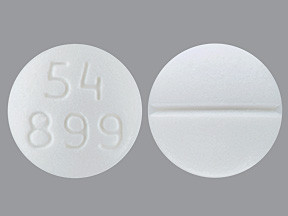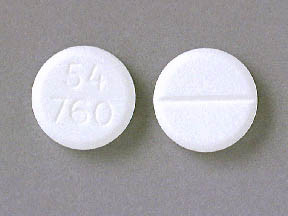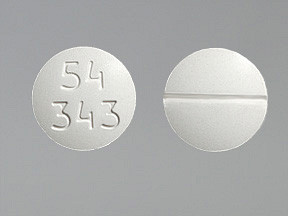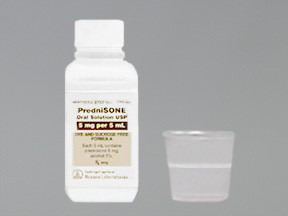PREDNISONE - ORAL
PHONETIC PRONUNCIATION: (PRED-ni-sone)
COMMON BRAND NAME(S): Deltasone
GENERIC NAME(S): prednisone
Uses
USES: Prednisone is used to treat conditions such as arthritis, blood disorders, breathing problems, severe allergies, skin diseases, cancer, eye problems, and immune system disorders. Prednisone belongs to a class of drugs known as corticosteroids. It decreases your immune system's response to various diseases to reduce symptoms such as swelling and allergic-type reactions.
How to use PREDNISONE - ORAL
HOW TO USE: Take this medication by mouth, with food or milk to prevent stomach upset, as directed by your doctor. Take the tablet form of this medication with a full glass of water (8 ounces/240 milliliters) unless your doctor directs you otherwise. If you are using the liquid form of this medication, carefully measure the dose using a special measuring device/spoon. Do not use a household spoon because you may not get the correct dose. If you are prescribed only one dose per day, take it in the morning before 9 A.M. Take this medication exactly as directed by your doctor. Follow the dosing schedule carefully. The dosage and length of treatment are based on your medical condition and response to treatment. If you are taking this medication on a different schedule than a daily one (such as every other day), it may help to mark your calendar with a reminder. Do not stop taking this medication without consulting your doctor. Some conditions may become worse when this drug is suddenly stopped. Also, you may experience symptoms such as weakness, weight loss, nausea, muscle pain, headache, tiredness, dizziness. To prevent these symptoms while you are stopping treatment with this drug, your doctor may reduce your dose gradually. Consult your doctor or pharmacist for more details. Report any new or worsening symptoms right away. Tell your doctor if your condition persists or worsens.
Side Effects
Precautions
Interactions
Overdose
Images
Reviews
Faq for PREDNISONE - ORAL
Prednisone is a synthetic corticosteroid medication that is taken orally. It is commonly used to treat various inflammatory conditions such as arthritis, allergies, asthma, certain types of cancer, and skin disorders.
Prednisone works by suppressing the immune system and reducing inflammation in the body. It inhibits the release of substances that cause inflammation and allergic reactions.
If you miss a dose of prednisone, take it as soon as you remember. However, if it is close to the time for your next dose, skip the missed dose and resume your regular dosing schedule. Do not double the dose to make up for the missed one.
Yes, prednisone can cause weight gain as it can increase your appetite and fluid retention. It is important to maintain a healthy diet and exercise regularly to minimize weight gain while taking prednisone.
Common side effects of prednisone may include increased appetite, weight gain, mood changes, difficulty sleeping, acne, headache, dizziness, nausea, and thinning skin. These side effects usually subside once the medication is tapered or discontinued.
Yes, prednisone can interact with certain medications, including blood thinners, antifungal drugs, antibiotics, and some vaccines. It is important to inform your healthcare provider about all the medications you are taking before starting prednisone.
The onset of action for prednisone can vary depending on the condition being treated. Some people may start experiencing relief within a few hours to a few days, while others may need several weeks for the full effect.
It is generally recommended to avoid alcohol consumption while taking prednisone as it can increase the risk of stomach irritation, gastrointestinal bleeding, and liver damage.
Yes, prednisone can weaken the immune system, making you more susceptible to infections. It is important to take precautions to avoid exposure to contagious illnesses while on prednisone.
Disclaimer
IMPORTANT: HOW TO USE THIS INFORMATION: This is a summary and does NOT have all possible information about this product. This information does not assure that this product is safe, effective, or appropriate for you. This information is not individual medical advice and does not substitute for the advice of your health care professional. Always ask your health care professional for complete information about this product and your specific health needs.




No Reviews Yet